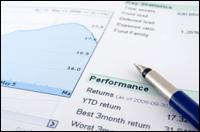 Here’s the $64,000 question: what is going to do well in the future? I love this kind of mind game, trying to figure out what sectors in our economy, what cultural movements are going to make money for investors in the businesses concerned.
Here’s the $64,000 question: what is going to do well in the future? I love this kind of mind game, trying to figure out what sectors in our economy, what cultural movements are going to make money for investors in the businesses concerned.
But now this is more than a parlor game or a mental challenge: this is how you’re going to recover from the economy and the stock market downturn that has damaged almost everyone’s portfolio.
There are lots of books around that deal with predicting future trends and ways in which countries and economies will be different in the decades to come. For the most part, these have been interesting and stimulating to read and then discuss in a group, much like you would sit around and talk with friends about last week’s episode of “Heroes.”
But, as I’ve said, it’s more important than ever to do your homework, spend some time reading and studying in this arena, and come up with some sectors and businesses that might profit from what is going to happen in the U.S. and globally.
For example, President-Elect Obama has told us over and over again in recent months that he believes we need to bolster the infrastructure of the United States, including roads, bridges, and such. If this turns out to be the case, where will we see growth and development? Which companies would stand to profit from building new bridges, resurfacing roads, replacing buildings that are deteriorating? It could be the construction companies who would be hired by the government to do the actual work. It might be the suppliers of the materials needed: cement companies, steel mills and refiners. This is one area where — if things proceed the way they are predicted — you could logically and carefully invest and perhaps make some good money in the years to come.
Instead of buying individual stocks, you might want to buy an ETF (exchange traded fund), which is a basket of stocks in a particular sector. So you would research companies that sell ETFs (such as Vanguard, Wisdom Tree, Barclays) and find the one or the ones that suit you best. And then you would nibble at buying them in the same way that we discussed nibbling at buying individual stocks.
Again, as we’ve said in the past, the advantage to buying ETFs is that you get a whole basket of stocks so that if one does badly, there’s a good chance that something else in the mix will do well.
It saves a bit of research because once you do the research and investigate the ETF, you have eliminated the need for extensive research about an individual company, because the managers of the ETF have hopefully already done that aspect of the research for you. They have done their work, if their ETF is a good one, checked out management, all the financial aspects of the company, the future predictions of success for the sector itself and the company within that sector, and included that stock in their ETF portfolio. (You can easily check the past track record of any ETF by going to Web sites designed to do just this.)
So here’s the advice for today in a nutshell: spend some time thinking about future trends. Talk to people in the know, get others’ opinions, find out why they believe what they believe about where our country and our world are going. What will be successful in terms of businesses, enterprises, undertakings, cultural movements? And how can you, as an individual investor, capitalize on this success?
Then, decide whether you want to buy individual stocks in a particular sector or a basket of stocks as you would find in an Exchange Traded Fund. Figure out how much money you want to put into this investment, and then divide it into several segments so you’re not buying all your shares at one time.
Then, be patient. Things are not going to turn around on a dime. It will take time, months, maybe years, to bring us out of the downturn we have experienced. Have you ever noticed that you can demolish a building in several minutes if you use the right equipment … but that it takes months to rebuild it into a useable structure? This is true of the economy, and now it’s true of peoples’ portfolios and investments. They are not going to come back immediately or quickly. Slow and steady, like the turtle, wins the day. And, in this case, patience really is a virtue.
